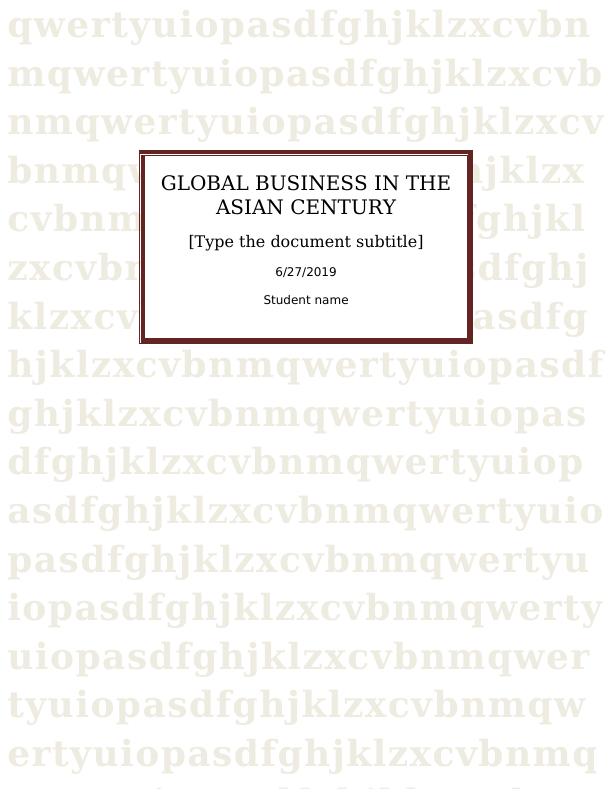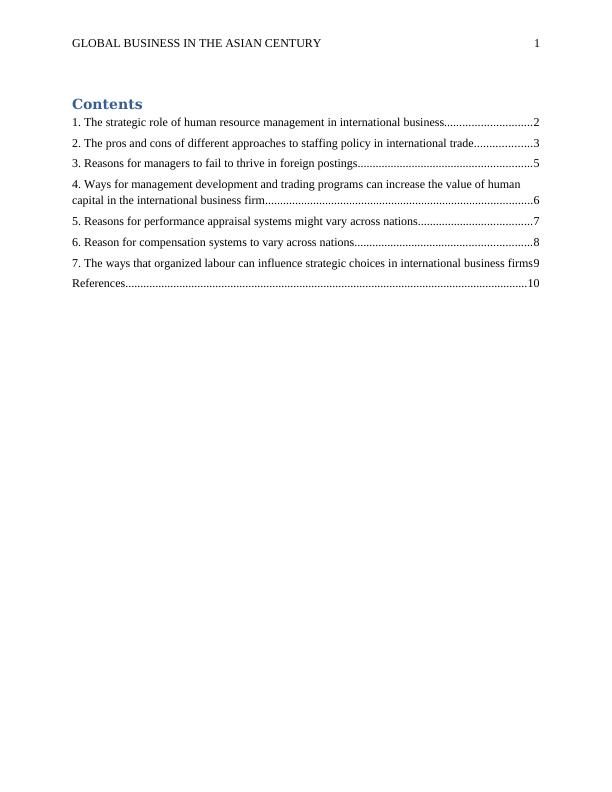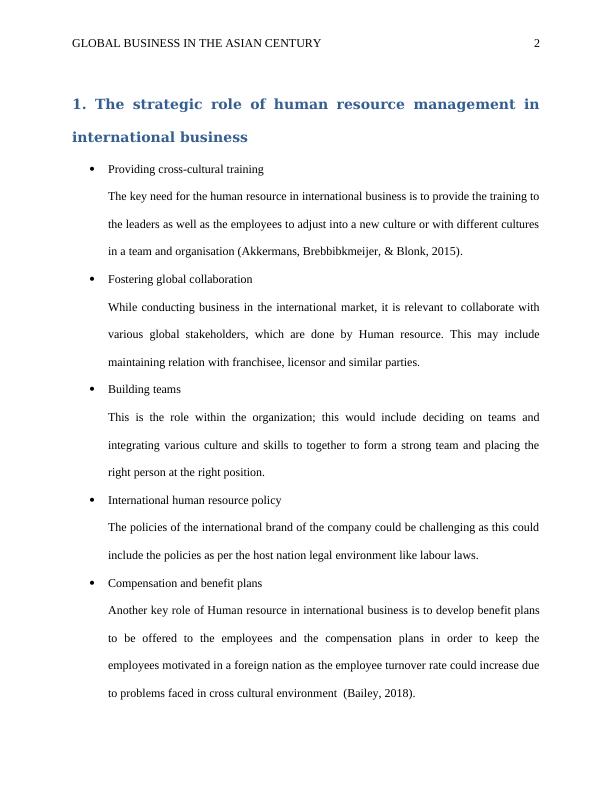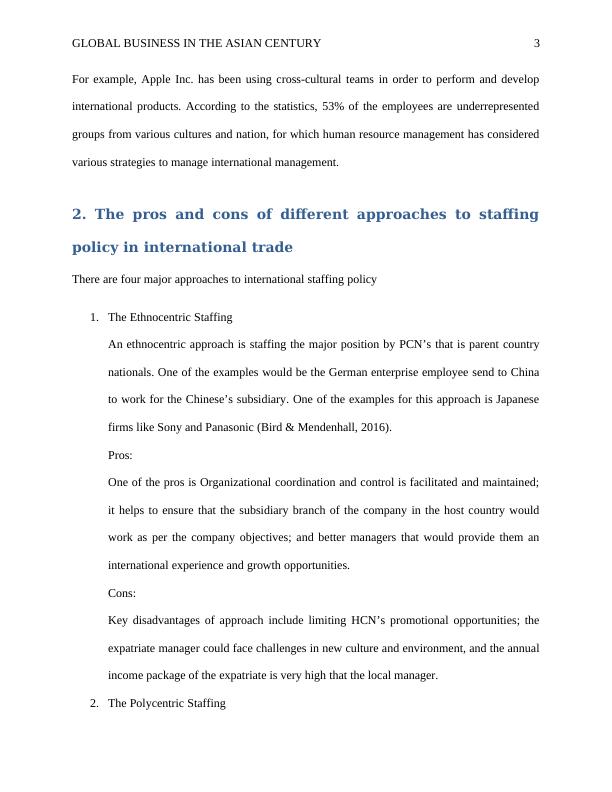The strategic role of human resource management in international business
Summarize the strategic role of human resource management in international business. Identify the pros and cons of different approaches to staffing policy in international trade. Explain why managers may fail to thrive in foreign postings. Recognize how management development and training programs can increase the value of human capital in the international business firm. Explain how and why performance appraisal systems might vary across nations. Understand how and why compensation systems might vary across nations. Understand how organized labor can influence strategic choices in international business firms.
Added on 2022-12-23
About This Document
The strategic role of human resource management in international business
Summarize the strategic role of human resource management in international business. Identify the pros and cons of different approaches to staffing policy in international trade. Explain why managers may fail to thrive in foreign postings. Recognize how management development and training programs can increase the value of human capital in the international business firm. Explain how and why performance appraisal systems might vary across nations. Understand how and why compensation systems might vary across nations. Understand how organized labor can influence strategic choices in international business firms.
Added on 2022-12-23
End of preview
Want to access all the pages? Upload your documents or become a member.




